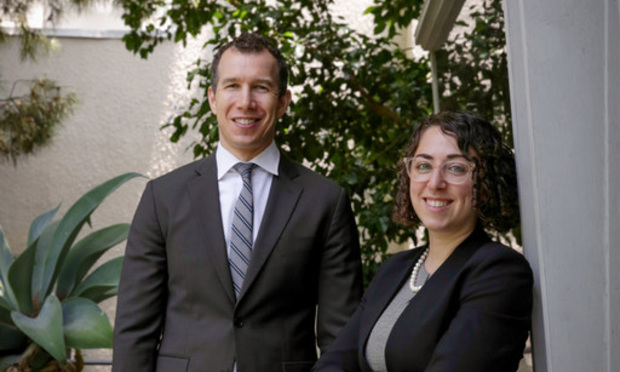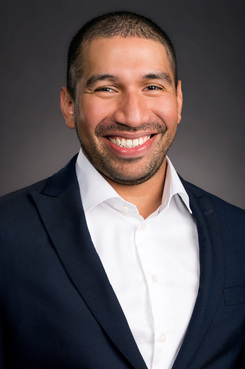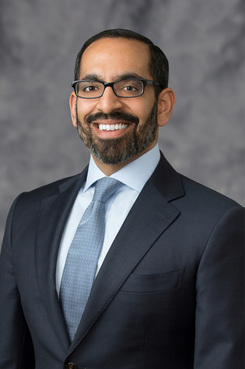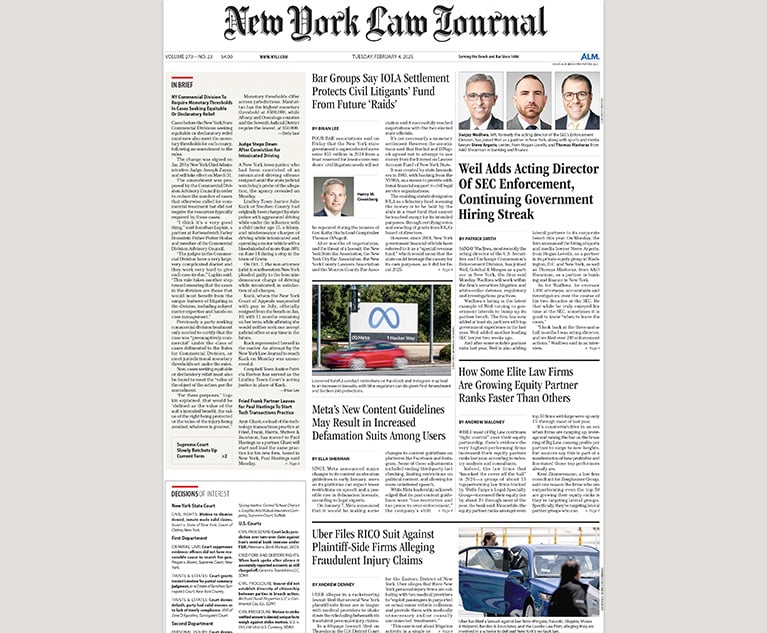On the Long Road Back: Lawyers Waylaid by the Recession Faced Difficult Odds
Lawyers who graduated during and shortly after the Great Recession were spun sideways by layoffs and deferrals. Many are still trying to get back on track.
June 27, 2019 at 10:47 AM
17 minute read
The original version of this story was published on The American Lawyer
 Alexander Chemers, left, and Jennifer Katz, right, both attorneys with Ogletree, Deakins, Nash, Smoak & Stewart, at their home in Los Feliz, California. Photo: Jamie Rector
Alexander Chemers, left, and Jennifer Katz, right, both attorneys with Ogletree, Deakins, Nash, Smoak & Stewart, at their home in Los Feliz, California. Photo: Jamie Rector
Jennifer Katz remembers heading to work that day, but not much else.
She was an associate at Latham & Watkins in Los Angeles, six months into the job on that Friday morning in late February 2009.
“I remember getting an email asking if I was coming in and being very nervous as I drove in, but after that it's like a blur,” she says. “I couldn't for a million dollars tell you what happened in that meeting.”
Like many of her associate colleagues, Katz was laid off that day, part of a wave of separations at law firms as the credit crisis segued into the Great Recession.
Though it wasn't the first firm to make a mass layoff in the souring economy, Latham's cuts ran so deep—190 associates and 250 staff, all at once—that they spawned a new verb. To “Latham,” in the parlance of the crowdsourced Urban Dictionary, means “to kill, destroy, fire without cause or dash one's hopes and dreams.”
“It wasn't a total shock,” Katz says. “I certainly didn't expect it, but there were rumors going around for weeks, and everyone read about the layoffs at other firms. I don't know that I thought it would affect me personally.”
But it did. Losing her job threw her off the path she'd so carefully prepared to travel: top college (University of Pennsylvania), top law school (UCLA Law Class of 2008), summer associate at Latham, then hired as a first-year associate. All was going according to plan—until it wasn't.
Aspects of Katz's unpredictable journey were shared by thousands of law school graduates from the years during and immediately after the recession, roughly 2008 through 2013. The percentage of grads who found work as lawyers right out of school in that period tumbled to the lowest levels in decades, causing many to question the value of a legal education. That, in turn, caused law school enrollment to drop and forced schools to be more transparent about their employment outcomes.
Years later, the effects are still being felt by those who graduated during the recession. The displacement of top graduates had a domino effect, as everyone downshifted to whatever work they could find, including solo practice, long-term contract review and foreclosure processing. Lawyers from less-selective law schools and those with the most debt were even worse off, forced to take low-level employment and sometimes to abandon the law altogether. For all the young lawyers who were affected by the crisis, success became a matter of perseverance, flexibility and, to some extent, luck.
Katz recalls going back to UCLA for help finding another job, only to find that the school wasn't prepared to assist students after their first clerkship or associate placement. (UCLA Law career services has since boosted its capacity for career assistance, the school says.) With student debt to pay back, she found herself scrambling for any work she could find as a lawyer. She was relieved to land at a small Beverly Hills, California, firm a couple of months later doing employment defense and general commercial work.
Katz's law school classmate and now-husband, Alexander Chemers, had better luck. His federal clerkship was unaffected by the downturn, and after completing it one year after graduation, he transitioned smoothly into an associate position at an Am Law 100 firm. He sent Katz job leads and she eventually was hired at employment law giant Ogletree, Deakins, Nash, Smoak & Stewart in June 2011, where she was promoted to of counsel in April. Chemers joined her at Ogletree, where he is a shareholder, in 2015.
“Honestly, it was a really hard couple of years, but I feel like I ended up in the right place in the long term,” Katz says.
As far as her experience at Latham, Katz says what most bothered her at the time was the firm's decision to defer the hiring of the class behind her for a year while firing associates in her cohort with no chance of being rehired.
“That was the only thing I felt a bit bitter about,” she says. “Why did they allow people to come a year later? Why couldn't they give us that option?”
Hard Times, Hard Decisions
Economists generally define the recession as having lasted from December 2007 through June 2009, when the national unemployment rate rose from 5% to 9.5%. Unemployment peaked at 10% in October 2009.
The legal industry slump lasted much longer. According to U.S. Department of Labor data, legal services employment fell from a high of 1.18 million in July 2007 to 1.11 million in 2010, a drop of 70,000 jobs, or nearly 6% of the legal workforce. Despite the overall economic rebound, legal employment still hasn't returned to prerecession levels.
Data from the National Association for Law Placement shows that law school graduate placement bottomed out in 2013, several years after the national recession had technically ended. The class of 2007 enjoyed a 91.9% employment rate (a 20-year high) and 76.9% of graduates got a job requiring bar passage. But the class of 2011 endured the worst legal job market since 1994, with 85.6% employment and just 65.4% of the class landing a job requiring bar passage. (By 2013, the employment rate among recent grads had slid to 84.5%.)
In fact, 2011 was the year that NALP and the American Bar Association coined the term “JD Advantage” to describe jobs in which bar passage is useful but not required. Less than half of the 2011 class (49.5%) got a job in private practice that year. That rate had hovered between 55% and 64% over the previous 25 years.
The hiring situation didn't really begin to improve until 2014. Even then, the rebounding rate of graduates getting law jobs was partly the result of smaller law school graduating classes between 2013 and 2016, according to Jeremy Bloom, senior vice president of the NALP Foundation for Law Career Research and Education. The impact of the recession went beyond the numbers.
“The work that was available changed fundamentally,” Bloom says. “Many who wanted to do transactional work became litigators, for instance. Individuals' career trajectories were altered because of how they began and continued their careers.”
 Frankie Arvelo, partner at Richards Rodriguez & Skeith.
Frankie Arvelo, partner at Richards Rodriguez & Skeith.Some grads proactively changed their career plans because of the recession. Frankie Arvelo, a 2010 graduate of the University of Pennsylvania School of Law, says alumni were coming back with dire warnings about the job market even as he began law school. He had aimed to work for Proskauer Rose's sports industry practice, but had second thoughts.
Returning students “told us the economy is tanking and we are all going to have trouble finding jobs,” Arvelo says. “I thought, oh no, are there going to be enough jobs for us? And that was in my first year.”
By the summer before graduation, Arvelo, a self-described “middling” law student, realized that better students than he weren't getting the clerkships and jobs they expected, so he sought an in-house job. If the mortgage meltdown and housing crisis were taking away some opportunities, they were creating others.
“Dodd-Frank came out, which was the compliance officer hiring act, and I had a recruiter from Goldman Sachs call me to work as a compliance officer on commodities trading,” Arvelo says.
When he realized a switch to transactional work wasn't likely, he applied to business school. After graduating with an MBA from the University of Texas, Arvelo found himself advising startups as a solo practitioner, and then as an associate at Egan Nelson, a local boutique. He eventually wound up representing companies in mergers and acquisitions. He joined his current firm, Richards Rodriguez & Skeith, in September 2018 as a partner to help build its emerging companies practice, he says.
“It wasn't the path I originally intended, but I'm grateful to work with entrepreneurs,” Arvelo says.
A Necessary Detour
Like many other attorneys who were laid off during the recession, Raghav Bajaj, University of Pennsylvania Law School Class of 2008, turned to contract work to stay employed. Unlike many, however, he went on to thrive as a partner at a big firm. He's now a member of the intellectual property practice group in the Austin office of Haynes and Boone.
 Raghav Bajaj of Haynes and Boone.
Raghav Bajaj of Haynes and Boone.Bajaj started his career as a patent law associate at now-defunct Dickstein Shapiro, in Washington, D.C., where he lasted through one round of layoffs before getting the ax late in 2009.
“I felt caught off guard for sure. I didn't think that it was something that would happen to me, I guess,” Bajaj says. “But I came to understand that is how the world works.”
To make ends meet, he became a contract lawyer, first doing document review and later more substantive work drafting patent applications at a boutique IP firm, Sterne, Kessler, Goldstein & Fox.
“I was able to pay my bills and pay my loans, so it was enough to get me through,” he says. Eventually, the small firm took him on as an associate in 2010.
Friends lured the Pittsburgh, Pennsylvania, native to Austin and Sutherland Asbill & Brennan, now Eversheds Sutherland, where he was hired in July 2013. He jumped to Haynes and Boone in November 2013. In January, he became partner.
Bajaj acknowledges that his journey back from contract lawyering is highly unusual. He credits the support of his family and girlfriend (now his wife) and some savings for helping him avoid adverse financial decisions after he was laid off. While most of his friends who were similarly set back in the recession are now also in a good place, it wasn't an easy time, he says.
“I was very worried for a large portion of that time until I had a permanent position,” Bajaj admits.
Shifting Focus
Some recession-era grads moved into other fields out of necessity, rather than deliberate choice.
“Everyone in my class either had fewer opportunities in terms of which law firms they could select, or other opportunities, which forced us to adapt and look at different career options,” says Patrick Lynch, a member of the class of 2010 at Vanderbilt Law. He co-founded legal education nonprofit Law School Transparency to advocate for better disclosure about costs and employment outcomes.
Lynch says Vanderbilt offered a post-graduate public-interest stipend for up to seven months for anyone who didn't secure an offer from a firm, a government agency or a traditional fellowship, hoping that would turn into a paid internship or a permanent job. He took a fellowship and moved with his partner to Chile to work for an environmental nonprofit. He founded his own nonprofit with a Chilean environmental attorney in 2011, where he held leadership roles until returning to the United States and enrolling at Harvard Kennedy School of Government, from which he graduated in May.
Lynch planned for a career in environmental advocacy, but the timing of his graduation left him with limited options. Going to Chile gave him a chance to shift gears toward public policy.
Meanwhile, Stephanie Biderman, a New York-based managing director of Major, Lindsey & Africa, the legal recruiting and consulting firm, graduated from the Benjamin N. Cardozo School of Law in 2008 and had started her career as a real estate associate at Paul Hastings right as the recession hit. She was laid off after 16 months. By 2010, though, she had found her current career in the adjacent field of legal recruiting.
“It is a tough feeling when the plan doesn't go the way you think it is going to go, but even at the time I was well aware of the realities of the market, particularly in the real estate field,” Biderman says. She also realized she didn't have a passion for the work.
“I quickly realized that this could be a blessing because it enabled me to take a step back and do what I wanted to do in the legal profession,” she says, “but probably not in the original way.”
Not all career shifts were as fortunate. Massachusetts resident Michelle Kohanloo, a 2010 graduate of the New England School of Law, couldn't find a legal job for 18 months.
“No one was hiring and people who had been hired or had secured clerkships were suddenly left high and dry,” she says.
When she did finally land a position, it was at a small firm handling general legal matters. She earned about $40,000, roughly the cost of a year's tuition during her time at New England Law. She eventually left to work as a solo, finding steady work processing real estate closings, but nothing that helped her get the career at a nonprofit or government agency she'd wanted.
Nine years after graduation from law school, she is part-time general counsel at an auto parts importer and is working as an associate real estate broker, where her law degree has been helpful but unnecessary. At times, the credential has even been a hindrance, she says.
She often hears the same feedback: “You're overqualified. If you're an attorney, you are not going to like the work here, you'll be bored. You won't make much money.”
Burdened by Debt
About 60% of those who graduated with a J.D. from 2010 to 2017 had at least $100,000 in student loan debt, according to one national study. For those burdened with daunting student loans, being unable to line up a good income threatened catastrophe.
 Verhonda Williams, an attorney at Universal Property & Casualty Insurance. Credit: J. Albert Diaz/ALM
Verhonda Williams, an attorney at Universal Property & Casualty Insurance. Credit: J. Albert Diaz/ALMVerhonda Williams of Fort Lauderdale, Florida, went eight months without a job after graduating from Florida A&M College of Law in 2011, the nadir of law-grad hiring, according to the NALP Foundation. She tried supporting herself and her family as a solo before finally finding work in February 2012 in foreclosure defense litigation, which was then prevalent in Florida, ground zero of the subprime mortgage meltdown. Her six-figure debt presented a surprising stumbling block in her job search, she says.
“I even had an employer tell me that because of the amount of debt that I was in—I don't even know how that came up, I don't know how they even knew—he said, 'I would love to hire you but I don't think you would stay, because you need more than I can offer,'” Williams says.
She accepted the foreclosure position hoping that it might lead to something better, but she soon discovered that potential employers weren't impressed with it. After a stint representing abused and neglected children for the state, Williams eventually found a better-paying position in insurance defense litigation. She's still heavily in debt for her education eight years out of school.
“It is so much,” Williams says. “I never anticipate being able to pay it off.”
Chad Van Horn, a South Florida attorney and 2009 law school graduate who assisted Williams in discharging a bar exam loan in bankruptcy, says many young lawyers he has helped were caught in the same trap.
 Shannon Murphy of Major, Lindsey & Africa.
Shannon Murphy of Major, Lindsey & Africa.“The work they did was not foundational. It was contract review and pumping out template work, not critical-thinking, high-level litigation. [Some] worked for firms that got in trouble with regulators, and the work didn't help them on their resumes,” Van Horn says.
Shannon Murphy, the managing director and Midwest office leader of interim legal talent at MLA in Chicago, graduated in December 2010 from Pepperdine School of Law. As a search consultant, she's seen firsthand the difficulties employers often have assessing recession-era law school graduates.
“Prerecession, there is an idea of what a person in eight to 10 years would have done, and their resumes look similar and follow a similar path. But during the recession they were not gaining that experience,” Murphy says. “We have to dig down with the client as to what skills they are looking for, and similarly discuss with candidates the experience they actually gained. It makes it hard to make clear comparisons.”
Stronger and Wiser?
Those fortunate enough to smoothly launch their careers during the Great Recession found a path to success laid out neatly before them.
“You could pretty much write your ticket for the rest of your career, because there are so few other attorneys who are similarly situated in terms of experience,” Murphy says.
The layoffs and smaller classes resulted in a shortage of midlevel associates that actually increased the value of survivors, and offered opportunities to some grads who had been left out earlier.
From her position as a recruiter, Biderman watched the market recalibrate.
“Once things started to pick up again, in 2012, firms came to MLA saying they wanted to hire midlevel associates, and we had to say that we didn't have them. They didn't exist,” Biderman says. “They had to be more flexible in what they were looking for, and sometimes that meant retooling associates who didn't have the experience, or taking a more junior associate, or hiring someone who had been laid off in the downturn.”
Some grads were gifted a second chance by the circumstances. Even so, that doesn't mean the lucky ones were completely unscathed. Some say a feeling of insecurity persisted long afterward.
Chemers, Katz's husband who landed at an Am Law 100 firm right out of his clerkship, emerged with two economic priorities, he says: saving up a “rainy day” fund in case he lost his job, and paying down student debt as quickly as possible in case he couldn't find work as a lawyer in the future.
He recalls a sense of powerlessness among recent grads and junior associates at the time, though he feels the pendulum has since swung back in their favor.
Emily Bianchi, an associate professor of organization and management at Emory University Goizueta Business School, studies how economic conditions in early adulthood influence later job attitudes and behavior. In a Harvard Business Review article last fall, she cited her own and others' research that found well-educated people who graduated from college during recessions on the whole earned less money and tended to work for smaller, less prestigious and lower-paying firms even decades later. But they were more satisfied than those who graduated in better times, and appeared to be less narcissistic as a group.
Indeed, most of the lawyers interviewed for this article felt that they gained something from overcoming difficulties early in their careers.
Katz retains an optimistic outlook, acknowledging that she and her husband had much different journeys to reach the same destination.
“You get where you want to be eventually and will find the place that is right for you if you keep doing it,” Katz says. “You can certainly accomplish your goals as long as you stick with them.”
Email: [email protected]
This content has been archived. It is available through our partners, LexisNexis® and Bloomberg Law.
To view this content, please continue to their sites.
Not a Lexis Subscriber?
Subscribe Now
Not a Bloomberg Law Subscriber?
Subscribe Now
NOT FOR REPRINT
© 2025 ALM Global, LLC, All Rights Reserved. Request academic re-use from www.copyright.com. All other uses, submit a request to [email protected]. For more information visit Asset & Logo Licensing.
You Might Like
View All
'A Shock to the System’: Some Government Attorneys Are Forced Out, While Others Weigh Job Options
7 minute read
Haynes and Boone Expands in New York With 7-Lawyer Seward & Kissel Fund Finance, Securitization Team
3 minute read
Trending Stories
- 1Contracts Game Changer? One-Sided ADR Provision Overturned
- 2Attorney Says Seeking Justice for Inmate's Death Requires Systemic Change as Well as Compensation
- 3Justice 'Weaponization Working Group' Will Examine Officials Who Investigated Trump, US AG Bondi Says
- 4Judge Accuses Trump of Constitutional End Run, Blocks Citizenship Order
- 5Brooklyn Prosecutor Returns to Private Practice to Co-Found Wrongful Conviction Boutique
Who Got The Work
J. Brugh Lower of Gibbons has entered an appearance for industrial equipment supplier Devco Corporation in a pending trademark infringement lawsuit. The suit, accusing the defendant of selling knock-off Graco products, was filed Dec. 18 in New Jersey District Court by Rivkin Radler on behalf of Graco Inc. and Graco Minnesota. The case, assigned to U.S. District Judge Zahid N. Quraishi, is 3:24-cv-11294, Graco Inc. et al v. Devco Corporation.
Who Got The Work
Rebecca Maller-Stein and Kent A. Yalowitz of Arnold & Porter Kaye Scholer have entered their appearances for Hanaco Venture Capital and its executives, Lior Prosor and David Frankel, in a pending securities lawsuit. The action, filed on Dec. 24 in New York Southern District Court by Zell, Aron & Co. on behalf of Goldeneye Advisors, accuses the defendants of negligently and fraudulently managing the plaintiff's $1 million investment. The case, assigned to U.S. District Judge Vernon S. Broderick, is 1:24-cv-09918, Goldeneye Advisors, LLC v. Hanaco Venture Capital, Ltd. et al.
Who Got The Work
Attorneys from A&O Shearman has stepped in as defense counsel for Toronto-Dominion Bank and other defendants in a pending securities class action. The suit, filed Dec. 11 in New York Southern District Court by Bleichmar Fonti & Auld, accuses the defendants of concealing the bank's 'pervasive' deficiencies in regards to its compliance with the Bank Secrecy Act and the quality of its anti-money laundering controls. The case, assigned to U.S. District Judge Arun Subramanian, is 1:24-cv-09445, Gonzalez v. The Toronto-Dominion Bank et al.
Who Got The Work
Crown Castle International, a Pennsylvania company providing shared communications infrastructure, has turned to Luke D. Wolf of Gordon Rees Scully Mansukhani to fend off a pending breach-of-contract lawsuit. The court action, filed Nov. 25 in Michigan Eastern District Court by Hooper Hathaway PC on behalf of The Town Residences LLC, accuses Crown Castle of failing to transfer approximately $30,000 in utility payments from T-Mobile in breach of a roof-top lease and assignment agreement. The case, assigned to U.S. District Judge Susan K. Declercq, is 2:24-cv-13131, The Town Residences LLC v. T-Mobile US, Inc. et al.
Who Got The Work
Wilfred P. Coronato and Daniel M. Schwartz of McCarter & English have stepped in as defense counsel to Electrolux Home Products Inc. in a pending product liability lawsuit. The court action, filed Nov. 26 in New York Eastern District Court by Poulos Lopiccolo PC and Nagel Rice LLP on behalf of David Stern, alleges that the defendant's refrigerators’ drawers and shelving repeatedly break and fall apart within months after purchase. The case, assigned to U.S. District Judge Joan M. Azrack, is 2:24-cv-08204, Stern v. Electrolux Home Products, Inc.
Featured Firms
Law Offices of Gary Martin Hays & Associates, P.C.
(470) 294-1674
Law Offices of Mark E. Salomone
(857) 444-6468
Smith & Hassler
(713) 739-1250







